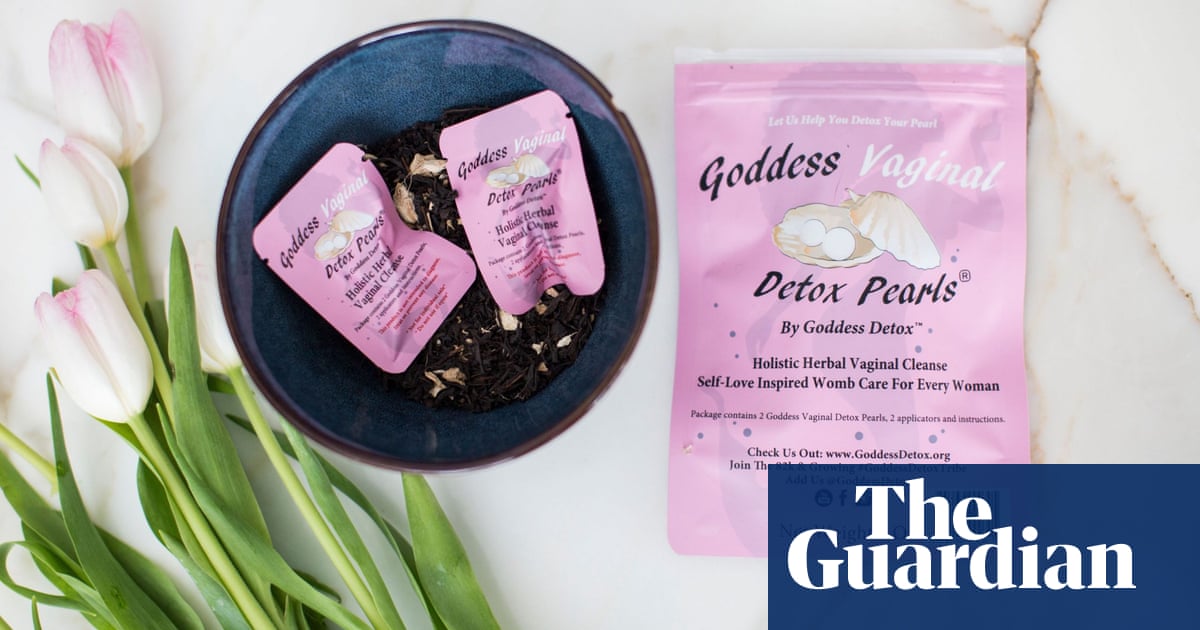
Meta, YouTube and Google are profiting from posts promoting harmful and useless health products to women in Kenya, according to an investigation.
Researchers from the media collective Fumbua have accused big tech firms of amplifying content that promises unproven cures for infertility and herbs that can stave off cancers on their networks.
They have found Facebook pages selling yoni pearls – mesh-wrapped herb balls – to be inserted in the vagina to “cleanse” the uterus and protect women from cervical cancer. Steaming, which involves sitting over a bowl of boiling water, was promoted as a treatment for endometriosis.
“Facebook’s own algorithms are often amplifying this content, and are letting ads for detox remedies target Kenyan users,” said the report, which points out there is no scientific evidence to support any of the supposed health benefits.
“Google and YouTube are also part of this harmful system, profiting off ads for vaginal detox products despite evident health risks.”
Wanjiru Nguhi, who led the research, said: “What is most alarming is how freely these adverts are available. People are not just able to sell things that are harmful, but to do so publicly and even pay for these adverts to go viral. There’s an audacious impunity about it.”
Kristina Wilfore, co-founder of ShePersisted, an initiative to address gendered disinformation, and which supported the investigation, added: “Scam products are being delivered into the Kenyan marketplace while big tech is asleep at the wheel.”
Fumbua’s research comes at a time of greater scrutiny of social media platforms in Kenya. Meta is facing three lawsuits alleging inadequacies in its content moderation systems. The cases have led to greater scrutiny by the country’s social media monitoring bodies. A report by Kenya’s council for responsible social media found that almost half of respondents said they had seen misinformation on social media sites, while half believed they could confidently identify it.
About 9.25 million Kenyans use Facebook, 9.44 million use YouTube and 2.2 million people use Instagram, according to a 2023 report on internet use.
So-called “vaginal detox” products have been made popular by celebrities such as Gwyneth Paltrow and Vera Sidika, star of the Real Housewives of Nairobi.
Medical experts have cautioned against using herb balls, which can sell online for about 1,000 Kenyan shillings (about £5), and products for vaginal steaming, saying they are unnecessary and can cause pain and infections.
“You’re trying to clean your vagina but in the process you’re actually increasing your vulnerability,” said Jacqueline Chesang, a reproductive health specialist. Vaginas are self-cleaning and contain healthy bacteria that ward off infections, she said. Cleansing and steaming rituals interfere with the vagina’s pH balance and leave it more vulnerable to infection.
Chesang said she was concerned that online treatments might stop women seeking medical help for conditions.
Meta said the vaginal detox content did not violate its policies. “We remove content that promotes harmful miracle cures for health issues when the treatments are widely deemed likely to directly contribute to the risk of serious injury or death,” a company statement said.
According to its website, Meta works with third-party factcheckers in Africa to review and rate content on its platforms. Any material labelled false or misleading appears lower in the feed and is filtered out of “explore” on Instagram. It also says it rejects ads on content rated misleading by its factcheckers.
Google and YouTube declined to comment but have similar misinformation policies, which require material to present danger of bodily harm or be life-threatening in order for it to be removed.
On its blog, Google reports blocking or removing 51.2m adverts due to inappropriate or harmful content in 2022, and says it has taken “extensive measures to tackle misinformation and unreliable claims in [its] advertising ecosystem”.
But the Fumbua researchers said more needs to be done, adding that the higher visibility of such products in Kenya – east Africa’s “silicon savannah” – may be an early warning of harmful health trends across the region.
Markets for yoni products already exist in other African countries, including Nigeria and South Africa, where social media is a major site for e-commerce.
“The same way that there are laws in the offline space, there should be laws in the online space,” said Nguhi. “A conman cannot advertise on TV, so why are we allowing these things on the platforms?”
Researchers believe the marketing is exploiting pressures on women to conform to unattainable standards of sexuality and ill-informed notions of female hygiene. Gender specialist Evelyne Opondo said a reluctance to talk about sex and menstruation meant many women rely on the internet for health advice.
“We need to make sure that the platforms remain safe for women and girls. A lot of people are relying on this information,” said Opondo, a member of Kenya’s council for responsible social media. “There needs to be some regulation that is more stringent than self-regulation.”












